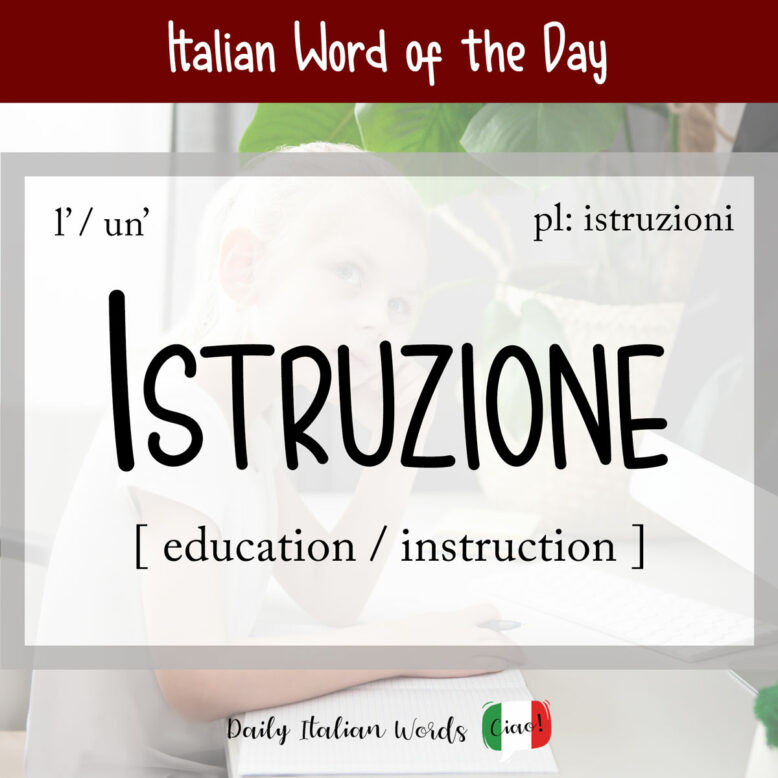The Italian word istruzione, in its singular form, generally translates as education, schooling or training in English. You can use it to talk about a) the process of receiving or giving systematic instruction, generally carried out in school, or b) that which is learned or studied.
It comes from the Latin instructio-onis, a derivative of the verb instruere (to instruct).

Istruzione is a feminine noun, and the plural is istruzioni.
l’istruzione
un’istruzione
le istruzioni
delle istruzioni
Some of the most common types of education include:
- istruzione pubblica = public education
- istruzione privata = private education
- istruzione obbligatoria = compulsory education
- istruzione speciale = special education
- buona istruzione = good education
- cattiva istruzione = poor education
- istruzione elementare = primary education
- istruzione secondaria = secondary education
- istruzione superiore = higher education
L’istruzione superiore non è un privilegio. È un investimento essenziale per il futuro.
Higher education is not a privilege. It is an essential investment for the future.

In its plural form istruzioni, however, the meaning changes to instructions, directions or orders. A few verbs you’ll often see paired with the plural form include:
- ricevere istruzioni = to receive instructions
- dare istruzioni = to give instructions
- attenersi alle istruzioni = to adhere to the instructions
- seguire le istruzioni = to follow the instructions
- fornire istruzioni = to provide instructions
- leggere le istruzioni = to read the instructions
You will also come across the longer istruzioni per l’uso which translates as instructions for use.
Questo articolo fornisce istruzioni dettagliate su come connettersi a una rete Wi-Fi.
This article provides step-by-step instructions on how to connect to a Wi-Fi network.

Finally, in legal terms, istruzione means inquiry whereas in computer terminology, it refers to the code in a programme that defines and carries out an operation.
Heather Broster is a graduate with honours in linguistics from the University of Western Ontario. She is an aspiring polyglot, proficient in English and Italian, as well as Japanese, Welsh, and French to varying degrees of fluency. Originally from Toronto, Heather has resided in various countries, notably Italy for a period of six years. Her primary focus lies in the fields of language acquisition, education, and bilingual instruction.


